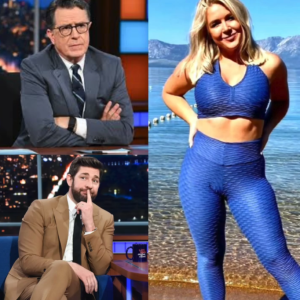Lia Thomas, born male but transitioning to female, competed in the men’s division for three years before beginning her transition and joining the women’s swim team. Her historic victories sparked a nationwide conversation on whether transgender women have an unfair advantage in women’s sports.
Critics of Thomas’ participation argue that biological males, even after transitioning, may retain physical advantages such as muscle mass and strength, which could undermine the integrity of women’s sports. Supporters, however, emphasize the importance of inclusion and equality, arguing that every athlete, regardless of gender identity, should have the opportunity to compete.
The NCAA’s new decision now clarifies how transgender athletes can participate in collegiate sports, offering a framework for inclusion while attempting to address concerns about fairness.
The New NCAA Guidelines: What It Means for Lia Thomas and Others
The NCAA’s latest decision introduces a more standardized and transparent set of guidelines for transgender athletes. These new guidelines will provide a clearer path for athletes like Lia Thomas, ensuring they have the opportunity to compete based on their gender identity. However, the guidelines also establish specific criteria that must be met before an athlete is allowed to compete in a women’s category.
Under the new rules, transgender women (assigned male at birth but transitioning to female) must undergo hormone therapy for at least one year before competing in women’s sports. This is intended to level the playing field by addressing some of the potential physical advantages associated with male puberty. Additionally, NCAA officials have stated that regular monitoring of testosterone levels will be required to ensure that transgender athletes do not retain an unfair physical advantage.
The Debate: Fairness vs. Inclusion
This decision has reignited the heated debate between fairness and inclusion in sports. On one side, critics argue that allowing transgender women to compete in women’s sports may compromise the integrity of the competition, particularly in contact sports or events where strength and speed are paramount. Some believe that these athletes may have inherent physical advantages due to their male biological traits, even after transitioning.
On the other side, advocates for transgender rights stress that denying transgender athletes the opportunity to compete according to their gender identity is discriminatory. They argue that sports should be about individual achievement and inclusion, not about rigid gender categories that fail to acknowledge the diversity of athletes’ experiences.
The Future of Transgender Athletes in NCAA Sports
The NCAA’s decision to implement these new rules is a crucial step in the evolving conversation about transgender athletes. While it remains to be seen how these guidelines will affect the future of collegiate sports, the ruling represents a compromise aimed at fostering inclusivity while attempting to address concerns about fairness.
As Lia Thomas continues to be a focal point in this ongoing debate, it is clear that her journey will have a lasting impact on the landscape of competitive sports for transgender athletes. The NCAA’s decision is a momentous one, as it attempts to strike a delicate balance between fairness and inclusion—one that may serve as a model for other sports organizations and governing bodies worldwide.
Conclusion: A Shifting Landscape for College Sports
The NCAA’s decision on Lia Thomas has opened a crucial dialogue about the future of sports, fairness, and inclusion. As society continues to evolve in its understanding of gender identity and the rights of transgender individuals, the world of sports is adapting in real-time. Whether this decision will ultimately help or harm the integrity of collegiate sports is a question that will take years to fully answer. What is certain, however, is that this marks a historic moment in the ongoing struggle to balance competitive fairness with inclusivity for all athletes.





